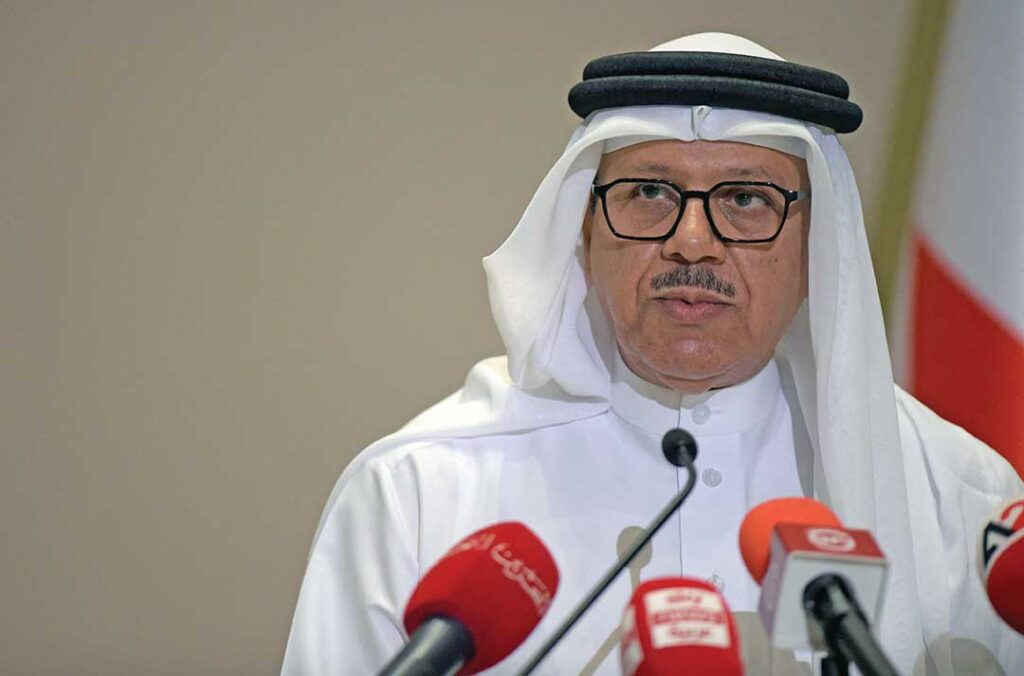I am pleased to provide this introduction to the latest edition of Unipath focused on the themes of peace, stability and good governance. In the Middle East and Central and South Asia, the achievement of these goals must contend with the threats of terrorism, radicalization and extremism. How best to respond to such challenges? For the states of the region, I believe we need to focus on the three C’s of consistency, cohesion and connectivity.
By consistency, I mean adhering to well-known norms and principles of international law, including resolving disputes through peaceful means, not using or threatening to use force, and refraining from interference in the internal affairs of other states. But also, more broadly, this means working to spread a culture of dialogue and mutual respect.
Cohesion means ensuring security through unified cooperation — the approach taken by Gulf Cooperation Council (GCC) countries — because we are stronger and more effective when speaking with one voice, whether to adversaries within our region or to extra-regional states, ensuring that our interests are better heard and understood.
Connectivity is building partnerships with like-minded states in our region and beyond that can directly strengthen our shared security and also build networks of resilience and deterrence against potential adversaries.
For each of these three C’s, diplomacy is the only way to achieve our aims sustainably. All of us inside and outside the region must never lose sight of the need to achieve peaceful political solutions to issues and disputes. We must work tirelessly to prevent conflicts before they break out and bring a quick end to existing wars. This is the clear and consistent position of the Kingdom of Bahrain and the GCC.
Whether it is the conflict in Russia-Ukraine, Armenia-Azerbaijan or in Yemen, we always underscore the centrality of peaceful political resolution. Indeed, the values of dialogue, coexistence and mutual respect have consistently underpinned the Kingdom of Bahrain’s foreign policy. We believe they are the best guides to ensure peace, security and stability in our region and the wider world.
As His Majesty King Hamad bin Isa Al Khalifa highlighted during a recent visit of His Holiness Pope Francis, peaceful dialogue is central to preventing and resolving conflicts. Indeed, Pope Francis described Bahrain as a crossroads of mutual enrichment between peoples.
There is undoubtedly a role for outside powers in strengthening Middle East security, for example, in continuing support for the Abraham Accords, just as there is scope for regional countries to play a principal and productive role in helping resolve international challenges.
But it is in no one’s interest to turn the region into a proxy theater for wider rivalries.
Seeing existing regional challenges through the prism of extra-regional conflicts makes it harder to achieve resolution. As with any region, the countries of the Middle East have their own specific interests and challenges to navigate.
We appreciate the need to minimize the impact of any conflict and the risks of spillover into other regions, whether those regions are the Middle East or elsewhere, and are working to ensure that such impacts are confined as much as possible.
These are some of the challenges facing the Middle East. I would like to repeat the words of His Majesty the King. As part of the pope’s visit, he noted that effective international partnerships are essential to maintain international peace and security, avoid escalation and confrontation, and redirect global efforts toward addressing such challenges.
This again underscores the importance of working together regionally and internationally to mitigate the impact of security challenges, and is recognition that such efforts are not zero-sum games but a means for all of us to benefit through advancing peace, development and prosperity.
Dr. Abdullatif bin Rashid Al Zayani
Minister of Foreign Affairs, Bahrain

